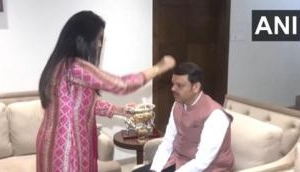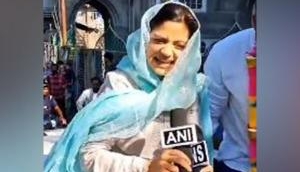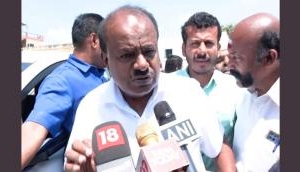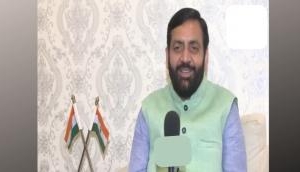Uttar Pradesh polls: Which way are Muslim voters likely to swing

Uttar Pradesh is home to India's largest Muslim population. Muslims constitute around 19% of the state's total population.
The community holds sway in a large number of Assembly seats:
In about 140 seats, Muslims account for 10-20% of the population
In 70 seats, Muslims are in the range of 20-30%
In 73 seats, they account for over 30% of the population.
This is the reason no party can afford to ignore Muslim voters in the state. Predictably, every major party is trying its best to tilt Muslims in their favour.
Who stands where
BSP
The Bahujan Samaj Party (BSP), which drew blank in the 2014 general elections, has entrusted the task of wooing Muslims to senior leader Nasimuddin Siddiqui. He is visiting various shrines and religious heads to elicit support for Mayawati.
Mayawati's party is reminding the Muslim electorate of Akhilesh Yadav government's unfulfilled promises. These include implementing recommendations of the Sachar Committee report and releasing the innocent Muslims arrested on terror charges.
The BJP is counting on senior RSS leader Indresh Kumar to engage the community. Kumar is reportedly using the Rashtriya Muslim Manch (RMM) - an RSS frontal organisation - to reach out to Muslims. The RMM is trying to showcase the hardline taken by Prime Minister Modi on the issue of triple talaq to convince the community that BJP cares for the Muslim women.
SP
UP Muslims have traditionally backed the Samajwadi Party, especially after the demolition of the Babri Masjid demolition. But recent trends show the community is now looking for other options.
SP's falling vote share among Muslims has been falling with every Assembly election:
2002: 54%
2007: 45%
2012: 39%
The BSP's share has been consistently increasing:
2002: 9%
2007: 17%
2012: 20%
Another major gainer has been the Congress. While only 10% Muslims voted for the party in 2002, the number increased by 8% in 2012 to around 20%.
Strengths and weaknesses
BSP
Strengths: The party is likely to benefit from the growing alienation of Muslims with the ruling SP. The relative sense of security under Mayawati contrasts with the high number of incidents of communal violence that have taken place under SP.
Mayawati is taking special pains to ensure a special place for Muslims in her social engineering formula.
Weaknesses: BSP lacks effective Muslim leaders with the exception of Nasimuddin Siddiqui. Unlike SP, Mayawati is not in direct contact with Muslim religious leaders.
Samajwadi Party
Strengths: Mulayam Singh Yadav enjoys a good image among Muslims. The party organisation as well as the state government has paid attention to Muslim representation.
Weaknesses: The SP government has failed to give a sense of security to the community. The party's Muslim leaders are often involved in factionalism. The failure to implement the recommendations of the Sachar Committee and the Rangnath Mishra Committee has also adversely affected its commitment towards the Muslim cause. The ongoing feud in Mulayam's family might further erode party's credibility among Muslims.
Congress
Strengths: The Congress-led UPA government had launched several welfare schemes for Muslims.
Weaknesses: The party has failed to regain the trust of Muslims for over two decades. The party lacks credible Muslim leaders in the state.
BJP
Strengths: Nothing significant.
Weaknesses: BJP's image of being a Hindutva party repels Muslims. The inflammatory statements of some of its leaders and incidents such as lynching of Mohammad Akhlaq in Dadri has not helped its cause either.
AIMIM
Strengths: Emergence of Asaduddin Owaisi as an important figure in national politics has captured the imagination of Muslim youngsters in particular.
Weaknesses: Like Bihar, AIMIM may get labelled as a spoiler who is ending up helping BJP by dividing Muslim votes.
First published: 28 October 2016, 10:21 IST





![BJP's Kapil Mishra recreates Shankar Mahadevan’s ‘Breathless’ song to highlight Delhi pollution [WATCH] BJP's Kapil Mishra recreates Shankar Mahadevan’s ‘Breathless’ song to highlight Delhi pollution [WATCH]](https://images.catchnews.com/upload/2022/11/03/kapil-mishra_240884_300x172.png)

![Anupam Kher shares pictures of his toned body on 67th birthday [MUST SEE] Anupam Kher shares pictures of his toned body on 67th birthday [MUST SEE]](https://images.catchnews.com/upload/2022/03/07/Anupam_kher_231145_300x172.jpg)






